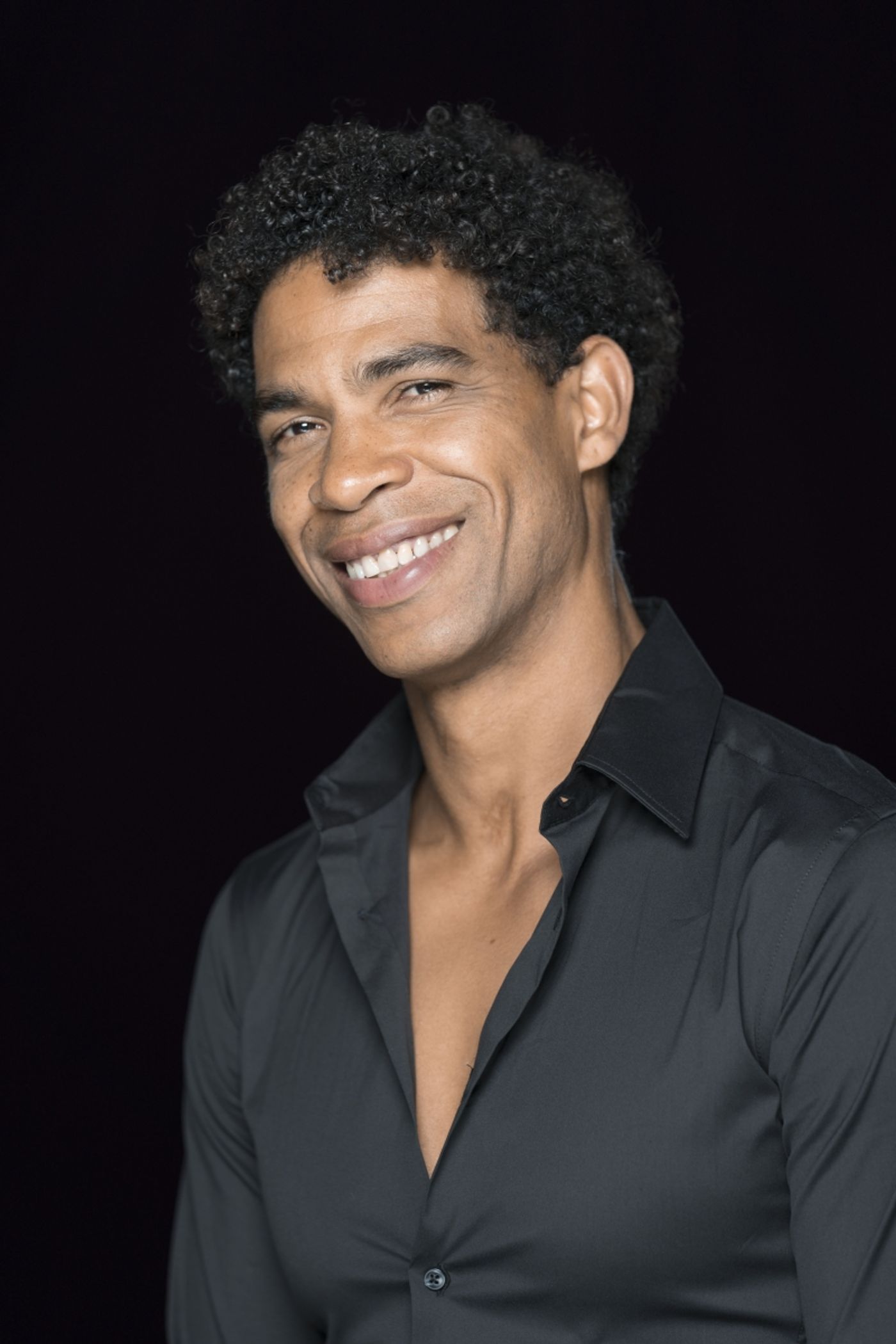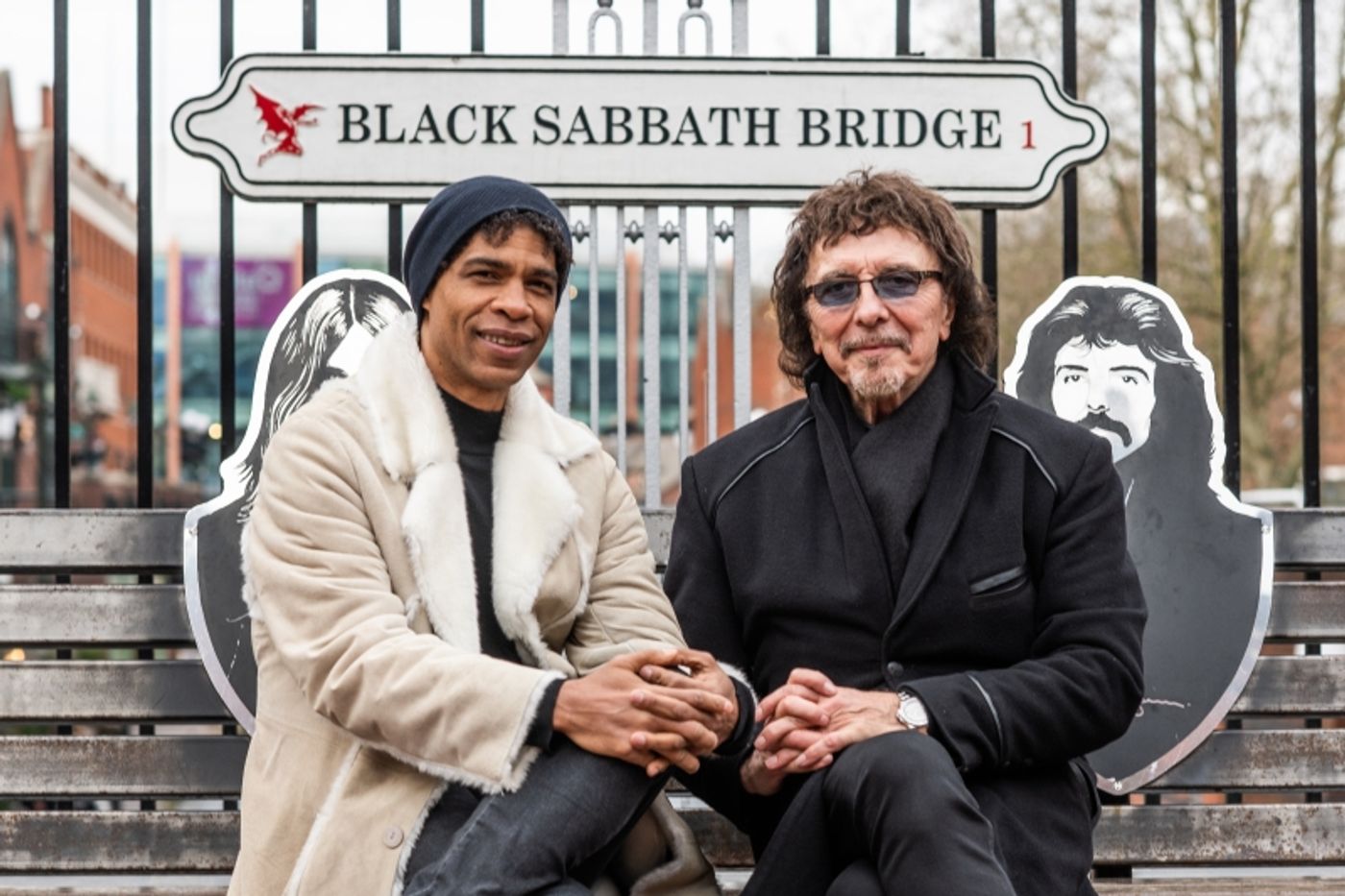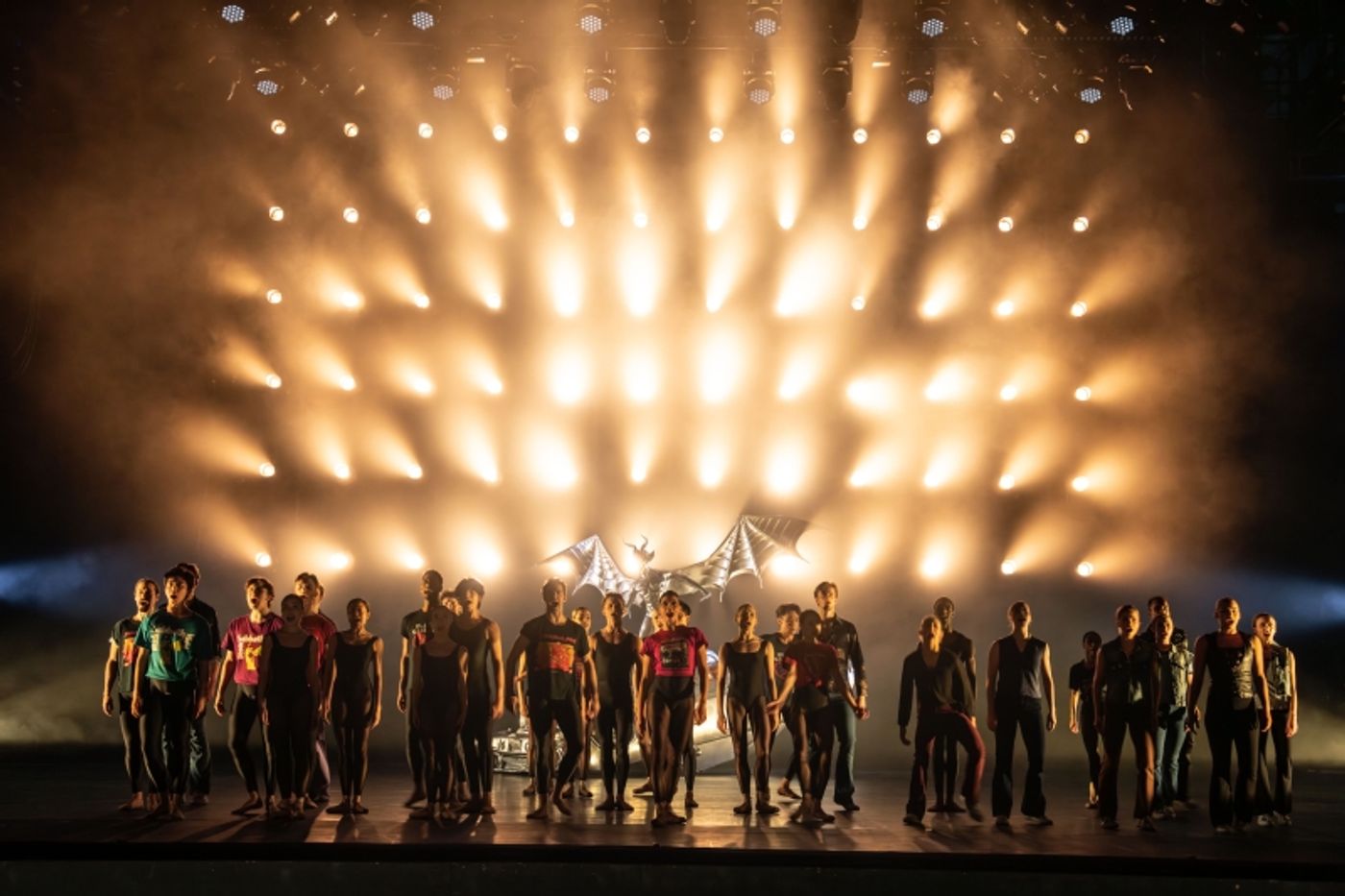Interview: Theatre Life with Carlos Acosta
Birmingham Royal Ballet's Artistic Director and accomplished choreographer on creating Black Sabbath- The Ballet and more.

Today’s subject Carlos Acosta is currently living his theatre Life as the Artistic Director of Birmingham Royal Ballet. He has been in the position since January of 2020. The production can be seen at the Kennedy Center in the Opera House from June 4th to the 8th when Birmingham Royal Ballet presents Black Sabbath- The Ballet.
Carlos was born in Havana in 1973 and trained at the Cuban National Ballet School in the city. After winning a succession of awards, including the Prix de Lausanne in 1990, he went on to dance professionally with the world’s most prestigious companies, with London’s Royal Ballet becoming his home. Carlos retired from classical ballet in 2016, having performed almost every classical role from Spartacus to Romeo – and in January 2020, he became Director of Birmingham Royal Ballet.
Carlos has created many award-winning shows, including Tocororo and Carlos Acosta & Friends of The Royal Ballet. He also choreographed the Royal Ballet productions of Don Quixote and Carmen, as well as the most recent West End production of Guys and Dolls. He has written two books: Pig’s Foot, a novel, and No Way Home, his honest and heartfelt autobiography. Yuli, a film inspired by his life, premiered to critical acclaim in April 2019.
Cuba’s culture and history have been important influences throughout Carlos’s career – not least through the establishment in 2016 of his own dance company, Acosta Danza. The company tours the world with its vibrant combination of classical and contemporary dance – and in 2022, it collaborated with BRB for the first time to premiere Jorge Crecis’s vibrant 24.
Carlos opened his first Dance Academy in Havana in 2017. The Academy was launched through the Carlos Acosta International Dance Foundation, which gives young dancers the same opportunities from which he himself benefited from – providing a three-year dance training program in an inspirational setting, free at the point of delivery.
Carlos’s extraordinary contributions to dance have been recognized with a CBE in the Queen’s New Year’s Honors List 2014, the Queen Elizabeth II Coronation Award from the Royal Academy of Dance in 2018, and the Critics’ Circle’s Annual Award for Outstanding Services to the Arts in 2019.
If you were lucky enough to see Acosta Danza at Kennedy Center about a month or so ago, then you have an idea of what Carlos Acosta's dancers and choreographers are capable of. The dancers have incredible precision. And for those who think Black Sabbath’s songs can’t be made to dance, read on for Carlos’ answer.
Please make it about the art and consider grabbing some tickets to Birmingham Royal Ballet’s Black Sabbath- The Ballet at Kennedy Center. Carlos Acosta is a god of dance who is living his dance and theatre lives to the fullest.
At what age did you get interested in dance and where did you receive your training?
I was enrolled in the National Ballet School of Cuba at 9 years of age. I didn’t like it at first, I found it repetitive and boring, I just wanted to play football, and I was more into breakdancing and hanging out with my friends in the ‘barrio’ I felt like I didn’t fit in there but I got used to it and when I saw the Cuban National Ballet perform, I began to see the possibilities and apply myself.
What were your first professional jobs as a dancer and as a choreographer?
My first job as a professional dancer was at age 16 at the Teatro Nuovo di Torino in Italy. I danced there for an entire season in ballets including Carmen, The Merry Widow and others. It was here that my teachers prepared me to enter the prestigious Prix de Lausanne where I won the much-coveted Gold Medal in 1990, dancing the Act 3 Basilio solo from Don Quixote.
At the Prix de Lausanne, Ivan Nagy invited me to join English National Ballet and I joined the Company in Autumn 1991 at age 18. I then joined Houston Ballet in 1993 and joined The Royal Ballet in 1998. The Royal Ballet was my ‘home’ until 2015. At The Royal Ballet I danced the principal roles in ballets by Kenneth MacMillan and Frederick Ashton and in works by so many other great choreographers.
My first choreographic commission was Tocororo - A Cuban Tale which received its world premiere in Havana in 2002, documented by the BBC.
When you took over Birmingham Royal Ballet, what was the biggest change thatyou felt the company needed that you have now implemented?
Among many other things, I wanted to hear people talking about BRB and the City of Birmingham in Paris, London, New York, Moscow and other centres of excellence. I wanted to present the Company in places where BRB and its work was less well known, to act as Ambassadors for the great City of Birmingham internationally. We have performed in Iceland, Rotterdam, Luxembourg, Hamburg and – just last summer – on the Pyramid Stage at the Glastonbury Festival in front of tens of thousands of people and many more online! This summer we return to the Virginia Arts Festival in Norfolk Virginia and make our debut at the Kennedy Center in Washington DC. I am pleased to say that interest in BRB has grown over the past few years.
The pandemic arrived just months into my Directorship, but we continued to engage with our home city and even managed to present some world premieres including Will Tuckett’s Lazuli Sky in 2020 and the first part of my Birmingham Trilogy entitled City of a Thousand Trades in 2021. The second part of the Trilogy was Black Sabbath – the Ballet which premiered in 2023 and the final part, Luna, was premiered in Autumn 2024. We have a strong relationship with our home community in the West Midlands and we are seeing more and more new people at performances and taking an interest in our work. Our amazing LEAP team does incredible work throughout the community with a variety of work and projects.
I also wanted to expand the repertoire to include ballets that the Company had never performed including my Don Quixote in 2022 and The Maiden of Venice, my reimagining of La Bayadere which will premiere in Birmingham in autumn 2026. At the same time, I wanted to present the work of great choreographers whose has never or rarely been seen inI the UK before. With that in mind, I was delighted to present Uwe Sholtz’s Seventh Symphony, Edward Kluge’s Radio and Juliet and Pontus Lidberg, who worked on my Black Sabbath - The Ballet and others including Julian Nunes who choreographed Interlinked for us in 2022.
.jpg?format=auto&width=1400)
Photo by Johan Persson.
Where did the idea for Black Sabbath: The Ballet come from?
When I arrived in Birmingham, I knew I wanted to create new works that celebrated the city. Black Sabbath the Ballet was the second of a trio of new ballets that celebrated Birmingham. I was thinking back to a long conversation I had with Jimmy Page on an airplane flying to Cuba some years ago around the idea of a surprising juxtaposition of art forms - ballet and rock music - so in the end this idea became linked to the city of Birmingham by one of its greatest rock exports, Black Sabbath instead of Led Zeppelin - no offence Jimmy!. Even before the ballet was created, it captured people’s imaginations - and it sold out very quickly and to a very diverse audience, many of them fans of heavy metal who’d never seen a ballet in their lives!

Photo by Drew Tommons.
When you approached Black Sabbath about turning their songs into a ballet, was there any apprehension on the part of the band?
We had an early advocate in Tony Lommi who became a real collaborator in the development of the project, particularly with regards to new arrangements of the music for a full orchestra. Not only did he like what he heard, but he loved what he saw, and he has become a regular attender of BRB performances. The rest of the band, along with Sharon (Osborne), have all also been supportive and all attended the world premiere with the exception, sadly, of Ozzy who was too unwell at the time.
Can you please tell us about your concept for Black Sabbath-The Ballet?
The production is divided into three acts, each with a unique choreographer, including Cuban Raúl Reinoso, Brazilian Cassi Abranches, and Swede Pontus Lidberg. It features a mix of live orchestrations of some of Black Sabbath's most iconic songs, as well as new compositions that capture the essence of their music. The first act looks at the environment the band emerged from, the industrial landscape of the city and its inhabitants. The second act delves into the story of Black Sabbath, from its inception to the departure of Ozzy Osbourne, with the choreography described as ethereal and punchy. The final third is all about the fans, it’s like being at a stadium concert in a way, very celebratory. You leave on a high. I am personally a huge fan of Black Sabbath, so it’s been so exciting for me but also the whole company to work with their incredible music in this way.

Photo by Johan Persson.
How long was it from initial idea to first performance for Black Sabbath- The Ballet? - I remember speaking to a journalist about it at my first press event after taking charge - it was more about stories of the city, the idea of a whole trilogy of works, but that was almost day one in the role, so that means a 3 year period til we premiered it - and let’s not forget we had COVID in the middle of that, which makes it even more of an incredible achievement really!
As a choreographer, do you feel that any style of music is adaptable to the genre of Ballet?
It’s not really about the music being adaptable, it’s more about how you can create a cohesion between disparate art forms, in a way that it makes sense. I have choreographed Carmen and Don Quixote - both have classical scores, but also both have precedents. On the other hand, though some might say ‘you can dance to anything’, I might not agree. Choreographers often collaborate with composers on works for ballets, but also there are works that use existing music from a range of genres that ballets are created on. So there’s lots of options, sometimes the amount of options can make decisions difficult but usually when a path is clear from the start, it bodes well for the outcome.
Can you please tell us what you have in store for Birmingham Royal Ballet in it’s25/26 season as well as any other projects you might have coming up that areindependent from the company?
We are going to Japan after the US with Sleeping Beauty and Cinderella - then everyone has a break before coming back to the UK to take Black Sabbath: The Ballet on tour there. We will open in Birmingham again, also returning to Plymouth and London but this time visiting Edinburgh and Manchester for the first time so that’s exciting. We round off the year with our two Nutcracker seasons, firstly at Birmingham Hippodrome and then our adapted version for the Royal Albert Hall in London. It’s non-stop and that’s even before we get to 2026!
Special thanks to Kennedy Center's always en pointe and grand jeté outgoing Senior Press Representative Brittany Laeger for her assistance in coordinating this interview and for ten plus years of incredible work and friendship .
Theatre Life logo designed by Kevin Laughon.

Videos


.gif)